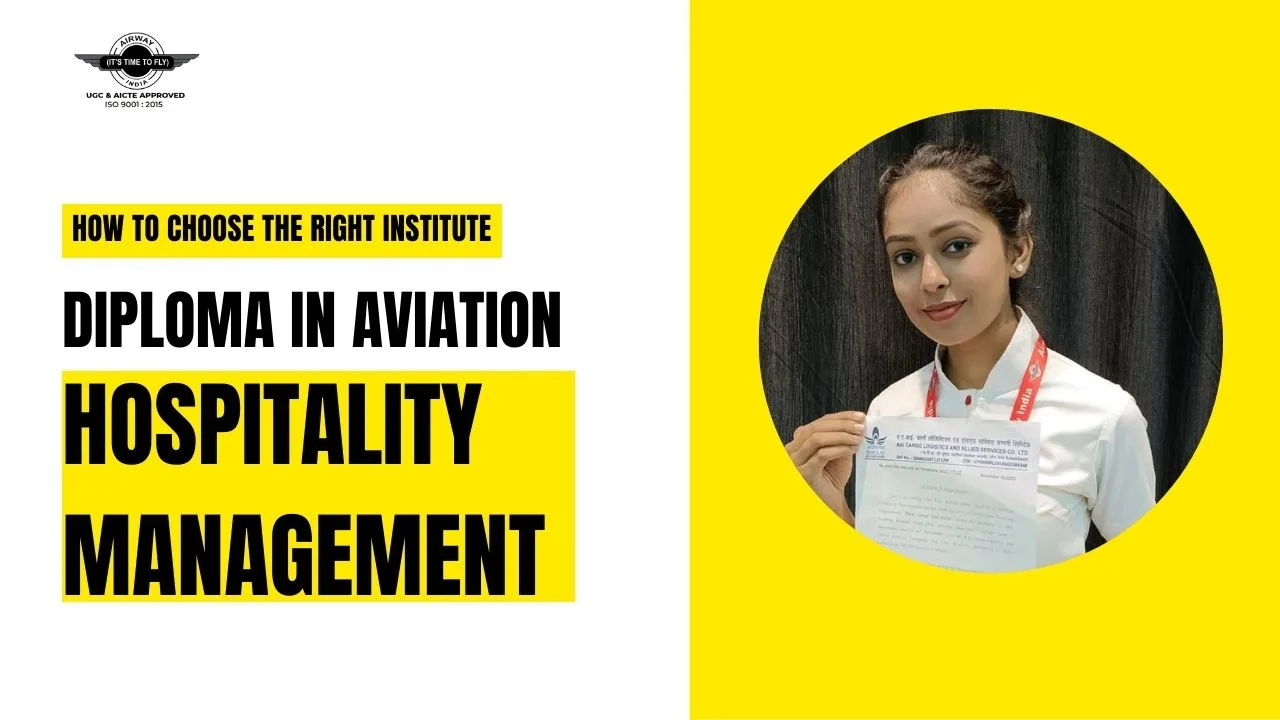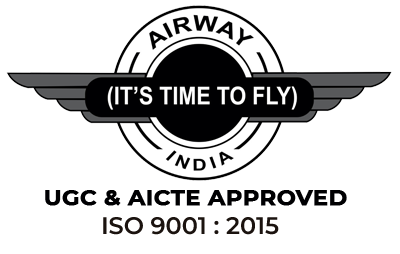
One of the most crucial choices you will make on your journey to a fulfilling career in the aviation sector is selecting the best school for your Diploma in Aviation Hospitality Management. It can be difficult to choose the best aviation training facility or hospitality school because there are so many that offer different courses. To help you make an informed choice and launch a prosperous career, this guide will guide you through the key factors to take into account: industry connections, faculty expertise, placement assistance, and curriculum quality.
Whether your goal is to work in airports, airlines, or cruise hospitality, picking the top aviation hospitality school guarantees that you will gain the professional confidence and skills you need to succeed in a cutthroat setting.
Why Selecting the Correct Institute Is Important
Students who earn a diploma in aviation hospitality management receive specialized training in operational procedures, onboard safety, and customer service management. But not every institution provides the same degree of exposure, instruction, and training. The appropriate organization will offer:
a current, well-organized curriculum that complies with industry standards.
knowledgeable instructors and practical training opportunities.
placement assistance with respectable airlines and lodging establishments.
networking events and industry partnerships that provide access to international employment opportunities.
Making a bad decision can result in out-of-date course materials, subpar internships, and few career options. As a result, this choice needs to be made carefully.
Important Considerations Before Enrolling
Course Curriculum
Verify that both the theoretical and practical facets of aviation hospitality are covered in the institute’s curriculum. A thorough course ought to contain:
Essentials of airline customer service.
Standards for grooming and cabin crew etiquette.
Safety protocols and emergency management.
Cultural sensitivity and communication abilities.
Travel documentation and airport operations.
Guest relations and hospitality management.
Make sure the curriculum is updated frequently to reflect global standards and aviation trends. It’s usually safer to choose institutions connected to international universities or aviation boards.
Knowledge of the Faculty
Effective learning depends on having knowledgeable and experienced teachers.
Seek out:
instructors with years of expertise in hospitality management, airports, or airlines.
presentations by professionals and industry experts.
ongoing initiatives for faculty development.
Individualized feedback and mentoring sessions.
A highly qualified faculty can provide students with practical insights and equip them to tackle real-world problems in crisis management, customer service, and cross-cultural interactions.
Hands-on Training and Internships
In the aviation industry, classroom instruction alone is insufficient. The ideal institution ought to provide:
training sessions that were modeled after real airline operations.
Opportunities for internships with top airports, airlines, and hotel chains.
Workshops for developing soft skills.
exposure to live problem-solving activities and cabin demonstrations.
In addition to experience, internships offer networking opportunities that may result in job placements after the course is finished.
Placement Support and Industry Links
Check to see if the school has a special placement cell that helps students find employment and receive career guidance. Assess:
relationships the institute has with reputable airport and airline operators.
prior placement histories and achievements.
workshops on resume construction and sessions for interview preparation.
networks of alumni that offer job referrals and mentoring.
Because it gives you direct access to job openings, a strong industry network can greatly improve your career prospects.
Infrastructure and Facilities
For training to be delivered effectively, modern infrastructure is essential. Seek out institutions that provide:
Aviation simulation labs and well-equipped training rooms.
availability of learning management systems and communication tools.
accommodations for students who live far away.
precautions for cleanliness and safety in dorms and classrooms.
Certifications and Accreditation
Verify that the institute is approved by the appropriate government agencies or aviation boards. Seek out:
ISO quality management certifications.
affiliation with aviation authorities or reputable universities.
licenses to run training programs pertaining to aviation.
The institute’s credibility and adherence to safety and educational standards are demonstrated by its certification and accreditation.
Reviews and Comments from Alumni
To learn about the institute’s practical impact, get in touch with former students or peruse online reviews. Among the questions to pose are:
To what extent did the training help you get ready for the industry?
Did you get enough help with your internship and placement?
How friendly and informed were the professors?
Was there encouragement and support in the classroom?
Speaking with former students directly can help you get a realistic sense of what to anticipate.
Extra Advice Before Making a Decision
To see the facilities for yourself, stop by the campus.
Prior to choosing one, evaluate several institutes.
Examine your options for financing and course fees.
Ask about advanced training modules or post-course certifications.
Verify whether the school provides the language and grooming courses required for airline work.
You can choose the best institute for your aviation career with confidence if you do your research and evaluate these important factors.
You can consult organizations like the International Air Transport Association (IATA), which provides guidelines and internationally recognized training modules, for additional information about aviation certifications and international industry standards.
Can I get internships in reputed airlines after completing a diploma in aviation hospitality management?
Yes, the best institutes have partnerships with airlines and airports, offering structured internship programs to help you gain practical experience.
What are the essential certifications I should look for in a diploma program?
Look for ISO certifications, government licenses, and affiliations with reputable universities or aviation bodies to ensure high-quality education.
Is it necessary to choose an institute with global industry connections?
Global industry links expand your career options and offer insights into international standards, which are essential for a thriving aviation career.
How important is faculty experience in choosing the right aviation institute?
Faculty with industry experience brings real-world knowledge, grooming techniques, and problem-solving strategies that can enhance your learning.
Does the location of the institute impact career opportunities?
Yes, institutes near major airports or metropolitan cities often have better industry exposure and access to internships and networking opportunities.
